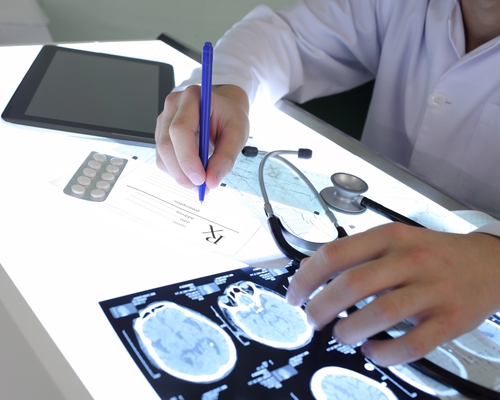
Capable of complex thought, reasoning, logic, language regulation, and more, the human brain is what sets us apart from other species. But as miraculous as it is, the human brain is not immune to problems.
During early childhood, the brain is susceptible to the effects of fever and viral illnesses, while during the adult years, the brain is more vulnerable to dementia and stroke, which can lead to seizures or epilepsy. According to the Centers for Disease Control (CDC), in 2015 1.2 percent of the United States population (around 3.4 million people) had active epilepsy.
What is Epilepsy?
Epilepsy, one of the most common nervous system disorders, is a brain condition that manifests with recurrent (two or more) seizures, abrupt bursts of electrical activity in the brain.
Seizure symptoms depend on what areas of the brain are involved and may present in a variety of ways, from uncontrollable body movements to a look of confusion or emotional distress.
There are two categories of epileptic seizures:
- Focal seizures. These seizures are centralized to one specific area of the brain.
- Generalized seizures. This is when your entire brain experiences a seizure, rather than just in one concentrated area.
Symptoms for both types of seizures vary but may include loss of consciousness and memory, jerking movements, and confusion. Some epileptic seizures may manifest with staring off into the distance and remaining unresponsive for seconds or minutes.
Additional Epilepsy Symptoms
People with epilepsy may experience psychological, emotional, and cognitive issues, including anxiety, depression, difficulties thinking or remembering, and confusion.
What Causes Epilepsy?
Any brain condition that causes changes in the brain’s anatomy or the way the brain works can cause epilepsy. Some of these conditions include:
- Brain tumors. Having a brain tumor causes severe disruption in the brain, sometimes leading to seizures and epilepsy.
- Strokes. A stroke occurs when the brain experiences interrupted blood flow. This can lead to brain damage and epilepsy.
- Traumatic brain injuries. Significant head injuries can lead to epilepsy.
- Degenerative nervous system disorders. Epilepsy can manifest from conditions like dementia or Alzheimer's disease.
- Genetic conditions. Certain genetic conditions, such as tuberous sclerosis or Angelman syndrome, can lead to epilepsy.
- Infections. Severe infections like meningitis can trigger seizures and epilepsy.
It is also possible to develop epilepsy for no apparent reason, with no preexisting symptoms, diseases, or genetic conditions.
Epilepsy Treatments
- Anti-seizure medication. There are many effective medications used to treat epilepsy and seizures. Medication is actually the most common way to manage seizures and works in approximately 70 percent of the cases.
- Brain stimulation. There are several types of devices that can be implanted under the patient’s skin to stimulate either the vagus nerve of the brain or the brain surface directly. This treatment is usually considered when medications do not provide complete relief.
- Ketogenic diet. A ketogenic diet is a dietary plan where a person consumes a carefully calculated ratio of high fat foods that are low in carbohydrates. While this diet is not conducive to everyone, it has successfully reduced seizures in some patients.
- Epilepsy surgery. Epilepsy surgery is a procedure that removes the area of the brain where seizures occur. It can be considered when other treatment options, such as medications, ketogenic diet, or brain stimulation do not work. This is most effective when trying to remedy focal seizures.
Since epilepsy is usually a manifestation of certain brain disorders, such as genetic conditions, consequences of trauma, stroke, or brain tumor, it is not entirely preventable.
Contact your doctor or a medical professional if you suspect you have epilepsy or if you’ve experienced seizures.
